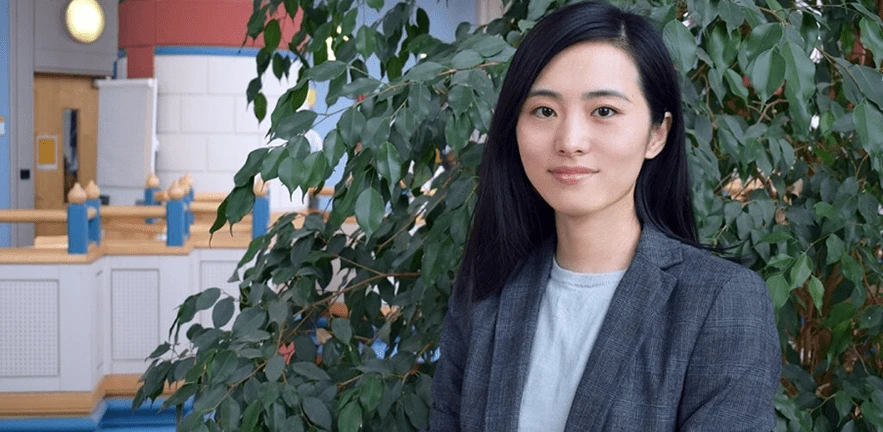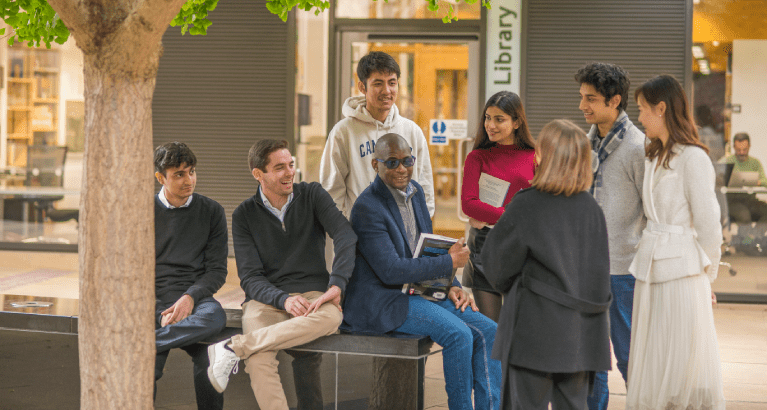Shasha Lu is Associate Professor in Marketing. Her research focuses on applying state-of-art machine learning techniques in developing marketing models to gain better customer insights and improve business practices in the data-rich environment. Her interests include artificial empathy, digital marketing, visual content/product design and optimisation, marketing innovation in data-rich environments, and unstructured data analytics in business.
Shasha Lu’s appointment as a University Lecturer at the University of Cambridge in 2015 made the news back in China for its rarity value. “But I really didn’t feel I was the story – it was all the academic systems, and especially the people, who got me there who should have had the credit.” Five years later, Lu was appointed Associate Professor of Marketing. She says now she is grateful to the foresight of Cambridge Judge Business School.
“By hiring me, Cambridge Judge were signalling to the market that they were looking for innovative research. My work takes me into very niche areas that one day are going to become mainstream. And one of the things I love most about this place is they are never afraid of something new.”
Even now, Shasha still finds time to be amazed at her surroundings. “When I came for my interview, I was so pleased to just be in Cambridge. I thought to myself, you have nothing to lose, but I didn’t ever dream I would be living here. Working at the University of Cambridge has played an important role in getting my research noticed – without that platform, my research would not have had the same impact.”
Research interests develop through undergraduate pathways
Her work on the use of artificial empathy in marketing involves using advanced computer technologies to analyse visual data – sometimes described as a scientific means of reading consumer’s minds. Shasha explains that she would never have even identified this niche as her area of research interest if it wasn’t for a crucial decision she took as a young undergraduate at Huazhong University of Science and Technology (HUST) in Wuhan, China.
“I started as a major in marketing. But after the first term of background classes covering everything from maths and physics to engineering, I started getting interested in technology. The university offered the opportunity to take a second major, so I chose to add computer science and technology.”
Taking 2 majors at undergraduate level is hard work, but it paid off. “I could not do the research I am doing right now, bringing the worlds of business and technology together, if I had not chosen to do those 2 majors back then.”
In her senior year at HUST, Shasha was taught by a Professor of Marketing who aroused her interest in research into marketing rather than its practice. On graduation, as her fellow students took jobs at large corporations like Huawei and Tencent, she chose instead to follow the research route. “I like the intellectual challenge.”
A graduate research pathway continues
Lu became one of the first students to be accepted on the consecutive MPhil-PhD programme at the School of Management at Fudan University in Shanghai. “When I first started, I did not really have a supervisor for my interests in marketing modelling. The focus at the time was the consumer behaviour research rather than the application of computer science methods.”
But due to the innovative nature of the programme she had 2 supervisors; as well as Professor Xiongwen Lu at Fudan, there was Professor Min Ding, incumbent Professor at Smeal School of Business of the Pennsylvania State University. And Professor Ding’s interests were in the domain of artificial empathy.
“Both of my supervisors have had a great impact on my career, and I am still working on papers with Professor Ding.”
A move towards Cambridge
And it was while she was studying at Penn State, USA, that the notion of Cambridge first entered Lu’s mind. “My US supervisor Min Ding was invited to Cambridge to give a talk at the Marketing Camp. He jokingly said as he left ‘maybe you’ll be there one day’. ‘No way!’, I said of course, but I remember being excited just to have that connection to Cambridge.”
Roll on 2014, and Shasha was preparing herself for the academic job market. “My dissertation involved using video to gauge people’s preferences. Artificial empathy was still a very niche domain and Big Data had only just started. Even my supervisors were having a difficult time positioning me in the market. And then Professor Ding told me Cambridge Judge were hiring. Cambridge was the first application I made.”
Teaching at the Business School
When Shasha first started teaching students, some of them were older than she was. She struggled with the language barrier and felt she was not a natural teacher. “I was nervous at first, but my teaching coach reminded me that the students really wanted to learn what I teach!”
She is grateful for the help and support she received from Cambridge Judge. “The Business School put me in touch with some people from the theatre. They helped me to see teaching as performance art. I have learnt that it takes time to nurture your teaching skills, but now I really enjoy taking classes, especially with the MBA students. Throughout my academic career I have been driven by the exciting and the new and I hope to pass on that enthusiasm.”
Shasha is conscious too of the crucial role mentors continue to play in her own career. “I’ve still got great mentors guiding me and helping me, and I’m grateful for that. I’m hoping that I will be a good mentor to my students the same way my mentors were to me. That’s how we pass on the baton in academia.”
Teaches: Marketing, Digital Marketing
Research interests: Artificial empathy, digital marketing, visual content/product design and optimisation, marketing innovation in data-rich environments, and unstructured data analytics in business.
Quirky fact: Loves sci-fi.





